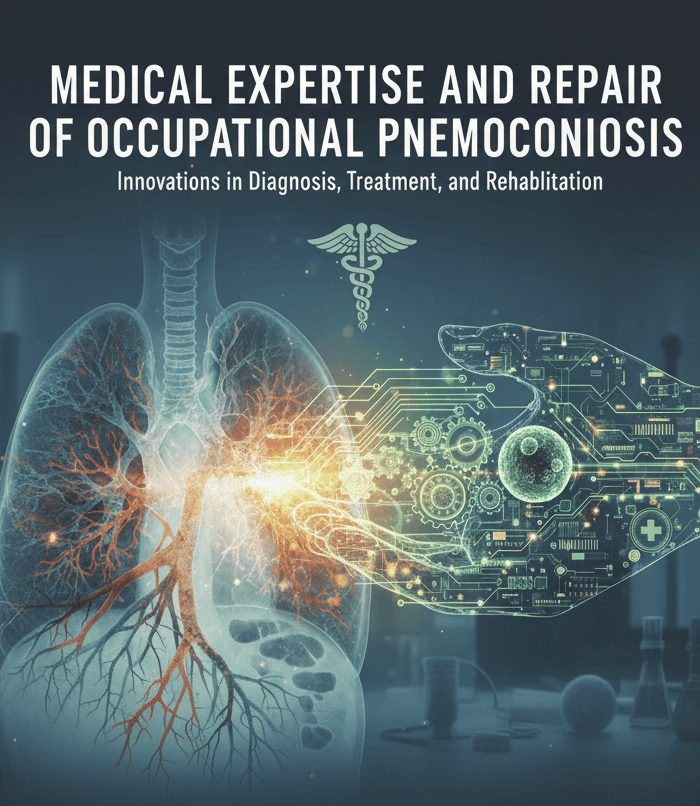Medico-Legal Expertise and Compensation of Occupational Pneumoconioses in Morocco

Medico-Legal Expertise and Compensation of Occupational Pneumoconioses in Morocco
Background: Pneumoconioses belong to the group of chronic interstitial pneumonias caused by prolonged inhalation of mineral microparticles, most often in occupational settings involving exposure to silica, asbestos, or other industrial dusts. Owing to their severity and irreversible nature, these conditions raise significant medico-legal challenges related to the presumption of occupational origin, the conduct of expert evaluations, and the procedures governing compensation.
Methods: A documentary and legal review was conducted using Moroccan legislative texts, primarily the Dahir of 29 December 2014 implementing Law No. 18-12 and the Ministerial Decree of 21 January 2014 establishing the official occupational disease tables, along with relevant decisions of the Supreme Court. Complementary medical literature and international guidelines on occupational pneumoconioses (WHO and ILO) were also examined to contextualize national practice and standards.
Results: Moroccan legislation provides a structured framework for the declaration, medico-legal assessment, and compensation of pneumoconiosis, based on a presumption of occupational origin once medical and exposure criteria are fulfilled. Medico-legal expertise constitutes the pivotal phase for establishing diagnosis, determining causality, and quantifying permanent disability. Compensation mechanisms include medical care coverage, temporary allowances, disability pensions, and, when applicable, job reassignment benefits. Persisting obstacles include underreporting, administrative delays, and difficulties in documenting chronic occupational diseases. Although judicial interpretation has broadened the scope of recognition for occupational diseases, it has also heightened the evidentiary responsibility of medical experts. Current compensation mechanisms do not always reflect the long-term socioeconomic burden of pneumoconioses. Harmonizing Moroccan legislation with international recommendations requires strengthening preventive policies, enhancing professional training, and periodically updating occupational disease tables.
Conclusion: The effective management of pneumoconioses in Morocco calls for an integrated approach that unites prevention, systematic surveillance, streamlined medico-legal procedures, and equitable compensation. Reinforcing medico-legal expertise and aligning national laws with international standards will improve worker protection and advance the modernization of occupational health law.


